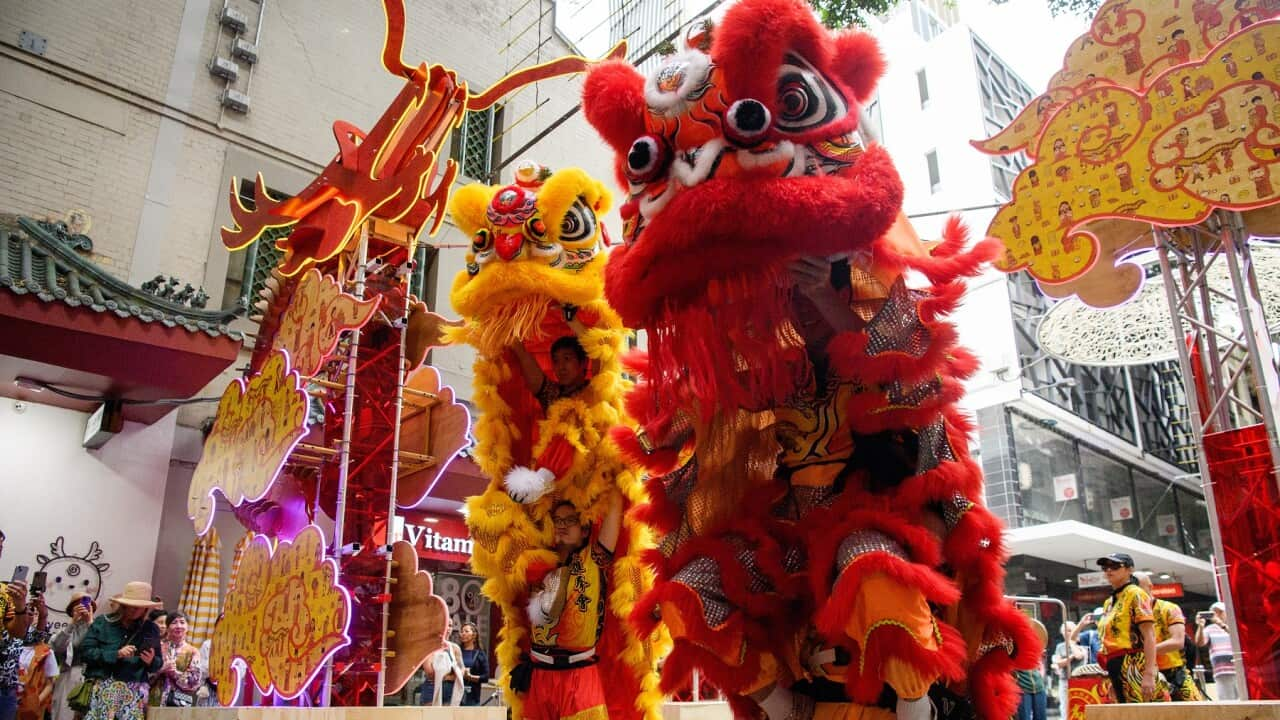Key Points
- Communities celebrating Lunar New Year has welcomed the Year of the Dragon.
- Filipino-Chinese couple Mary and Brendon Ha believes that celebrating Lunar New Year is one way of preserving their cultures.
- Simple practices of family gatherings, giving red envelopes to kids, red lanterns are a good start for children to learn the culture.
LISTEN TO THE PODCAST

Traditions of Lunar New Year live on with this Filipino Chinese family
26:39
Keeping Filipino and Chinese traditions
"Coming from a Chinese East-Timorese background and being born in Australia, we'll try to keep up with our traditions as much as possible," stresses Sydney dad Brendon Ha.
"We'll try to teach our child as much as we can."
Mr Ha together with his Filipino wife, Mary, believes that practising both of their respective traditions is one of of keeping their cultural background alive while living in Australia.
"We would encourage her to keep our traditions as much as we can as it will play an important role especially when she grows up as an individual," the business owner-dad notes.

Philippine-born Mary has embraced her husband Brendon's Chinese and East Timorese culture and she's happy she can have their daughter, Harley-Jane experience her Filipino traditions too. Credit: Mary Ha
"We just have to respect both of our traditions. I respect my husband and his family's Chinese East Timorese customs and beliefs as much as they respect my Filipino upbringing."
"If there's ever a situation where life in general gets harder, our daughter can refer back to those traditions and she may find nuggets of wisdom from past ancestors and part of our culture, that could help her," Dad Brendon points out.

For the Ha family, lighting up incense sticks is a tradition that they will keep as one way to pay respect to ancestors who had passed on. Credit: Mary Ha
Lunar New Year
Celebrating the Lunar New Year is one of the special occasions where the family's Chinese background can flourish more.
"I love it when our daughter enjoys the family get-togethers. She looks forward to receiving red packets," Mary fondly shares.
Mary and Brendon reiterate that "Lunar New Year celebrations do not have to be extravagant as long as you spend it with your loved ones."
Apart from sticky noodle dishes, the classic Timorese meatball (also called Newt Nang in Hakka) is always present on the Lunar New Year table for the family Ha.
The Timorese meatball is a pork fried dish that Brendon Ha's parents are used to making given his parents' ethnic Hakka and East Timorese culture.
"I have also learnt how to make this meatball dish that my husband's parents have imparted to us," Filipina wife Mary shares.













